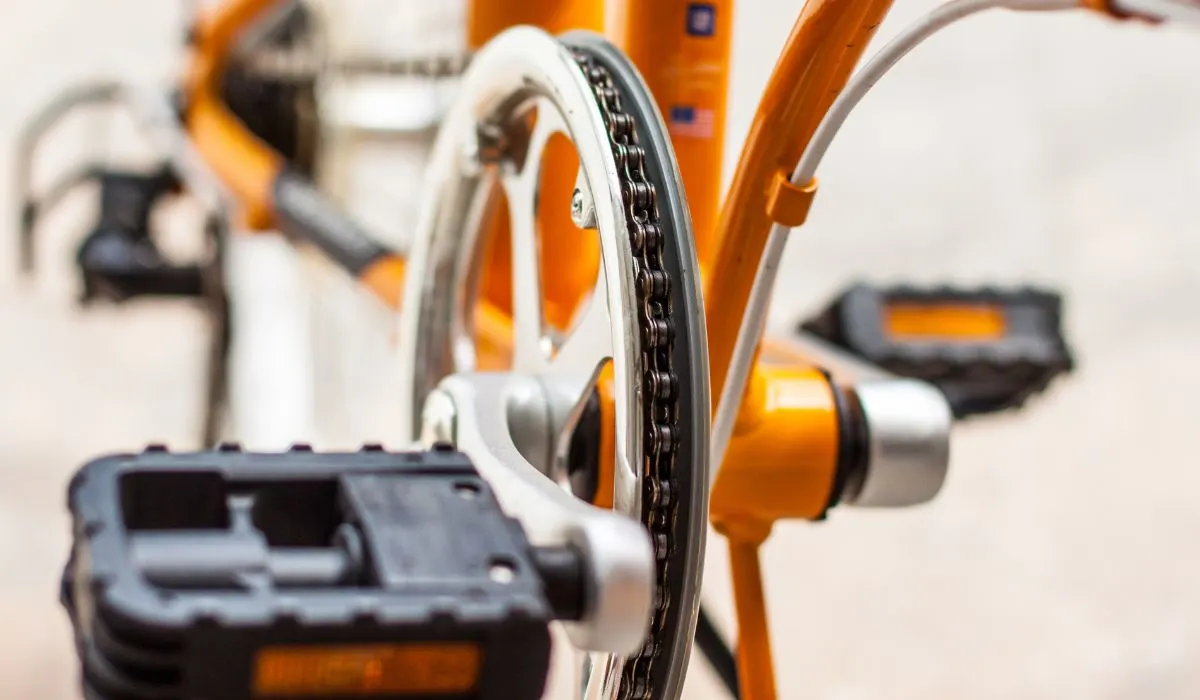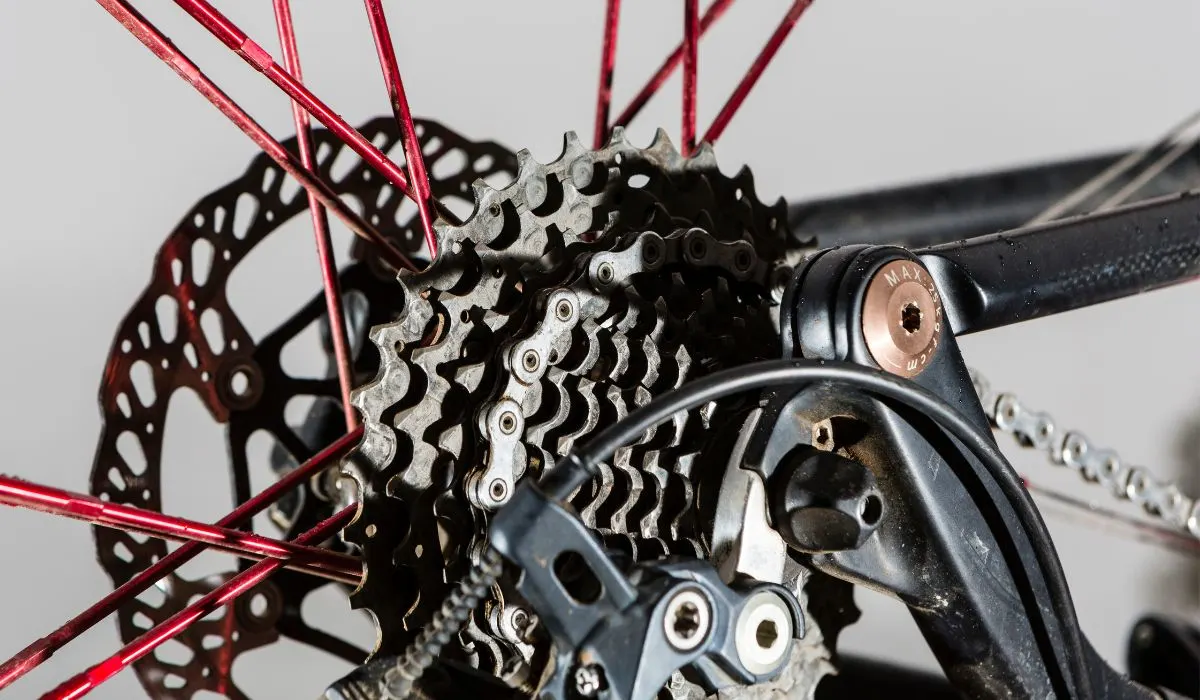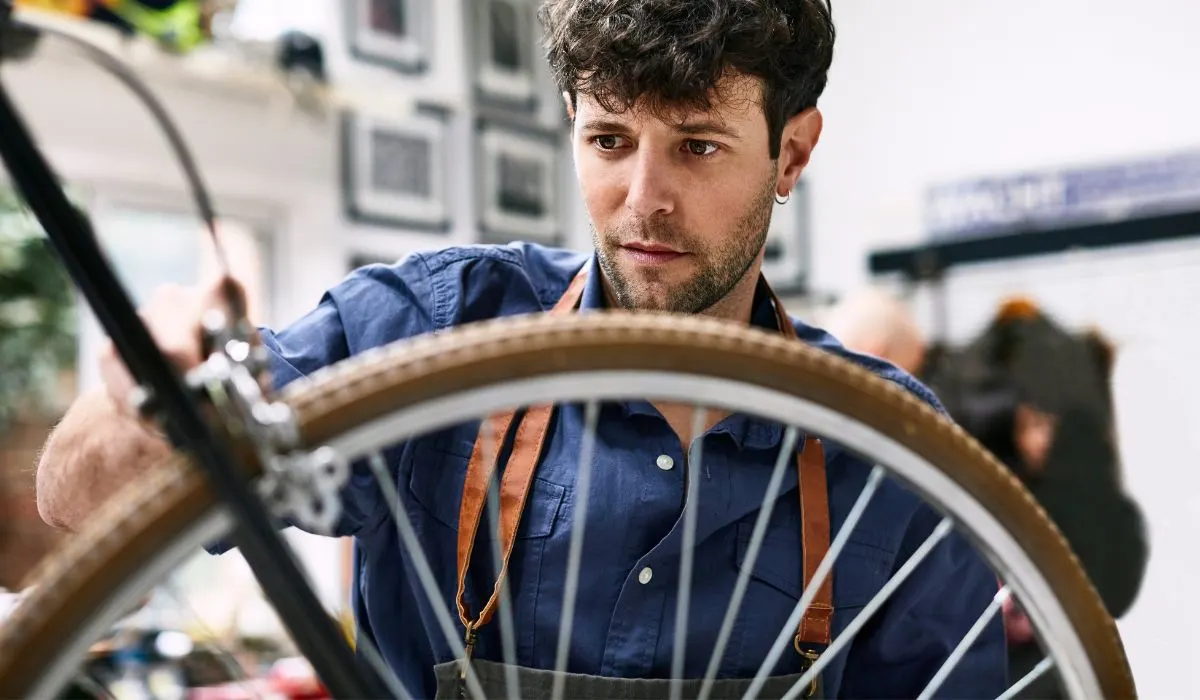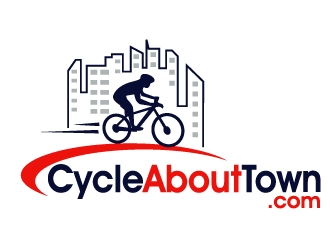
At some point in your life, you’ve probably ridden a bike. And at some point, you’ve also stopped pedaling and noticed that the cycle made a clicking sound. But why does it do that? Is there something wrong with the bike? Are you doing it wrong?
Don’t worry — you’re not doing anything wrong. In fact, there’s a perfectly logical explanation for why bikes make that clicking sound when you stop pedaling.
The clicking sound is caused by the chain moving back and forth over the cogwheels. When you stop pedaling, the chain tension relaxes, and the chain can start to bounce around on the cogwheels. The noise is more pronounced if you have fewer teeth on your cogwheels (a higher gear) because there’s less surface area for the chain to grip.
If you want to learn more about why bikes click when you stop pedaling, keep reading! We’ll explain why the chain moves back and makes a clicking sound and how you can get rid of it.
What Causes a Bike To Click When You Stop Pedaling
To understand why the chain moves back and forth on the cogwheels, we need to look at how gears work.
When you pedal, your legs turn the pedals connected to the crankshaft
- the crankshaft is connected to the chainring (the large gear in front of the bike)
- the chainring is attached to the cogwheel (the small gear at the back of the bike)
- the cogwheel is connected to the rear wheel
The chain wraps around the teeth of the gears and pulls on them. This turns the gears and propels the bike forward. When you stop pedaling, there’s no more extended force pulling on the chain. The only thing keeping the chain in place is gravity.
FACT: The chain can start to bounce around the teeth of the gears, which causes the clicking sound.
If you have fewer teeth on your cogwheels, the noise will be more apparent since there is less surface area for the chain to stick to. When you downshift, the chain has to wrap around a smaller gear, so there are fewer teeth for the chain to grip. This makes it easier for the chain to slip off the cogwheel and bounce around.

The Different Types of Bike Brakes and What Makes Them Click
There are two main types of brakes on bikes:
- Rim brakes
- Disc brakes
Rim brakes are the most common type of brake, and they work by pressing two pads against the rims of the wheels.
Disc brakes are less standard, but they’re becoming more popular because they offer better-stopping power. Disc brakes work by pressing two pads against a metal disc attached to the wheel.
Rim Brakes
Rim brakes can make a clicking sound when you stop pedaling for the same reason gears can.
When you stop pedaling, the chain tension relaxes, and the chain can start to bounce around on the cogwheels. This bouncing can cause the pads of the rim brakes to rub against the rims of the wheels and create a clicking sound.
Disc Brakes
Disc brakes can also make a clicking sound, but it’s usually not as pronounced as rim brakes. The reason disc brakes can click is because of the way they’re designed.
Disc brakes have two pads that press against a metal disc attached to the wheel. When you apply the brakes, the pads squeeze against the disc and slow down the wheel’s rotation.
The problem is that when you release the brake lever, the pads don’t always remove from the disc immediately. This can cause the pads to rub against the disc and create a clicking sound.
How To Fix The Clicking Sound on Your Bike
If your bike has rim brakes and you’re hearing a clicking sound when you stop pedaling, you should first check the brake pad tension. The brake pads should be tight against the rims of the wheels, but they shouldn’t be too close.
NOTE: If the pads are too loose, they can start to bounce around and make a clicking sound.
You can adjust the tension on the brake pads by turning the adjusting barrel clockwise or counterclockwise. Clockwise will tighten the pad, and counterclockwise will loosen it.
If the tension on the brake pads is OK, then you should check the pads’ alignment next. The pads should be aligned so they contact the rims of the wheels simultaneously. If the pads are misaligned, they can rub against the rim and create a clicking sound.
You can adjust the alignment of the pads by loosening the bolts that hold them in place and moving them until they’re evenly spaced on either side of the rim.
If your bike has disc brakes and you’re hearing a clicking sound, you should first check the pads for dirt or debris. If there’s dirt or debris on the pads, it can cause them to rub against the disc and create a clicking sound.
You can clean the pads with a rag or brush. Be sure to clean both the top and bottom of the pads.
If the pads are clean and you’re still hearing a clicking sound, the next thing you should check is the alignment of the pads, just like how you would do it with a rim brake.

Preventing Your Bikes From Clicking in the First Place
The best way to prevent your bike from clicking is to adjust your brakes properly. This means that the brake pads should be tight against the rims of the wheels (for rim brakes) or snug against the disc (for disc brakes).
You should also check the tension on the spring that holds the pads in place (for disc brakes only). The spring should be tight enough so the pads don’t rub against the disc but not so tight that it’s challenging to apply the brakes.
HOT TIP: If you adjust your brakes appropriately, you can help prevent a clicking sound when you stop pedaling.
Final Thoughts
If your bike is making a clicking sound when you stop pedaling, don’t worry — it’s an easy problem to fix. Just follow the steps in this article, and you’ll be back on the road in no time. Keep these tips in mind when you hear a clicking sound from your bike again.
If you’re looking for more biking tips and resources, check out our blog. There’s a lot to learn, and we’ll help you along the way.
You might also be interested in:
